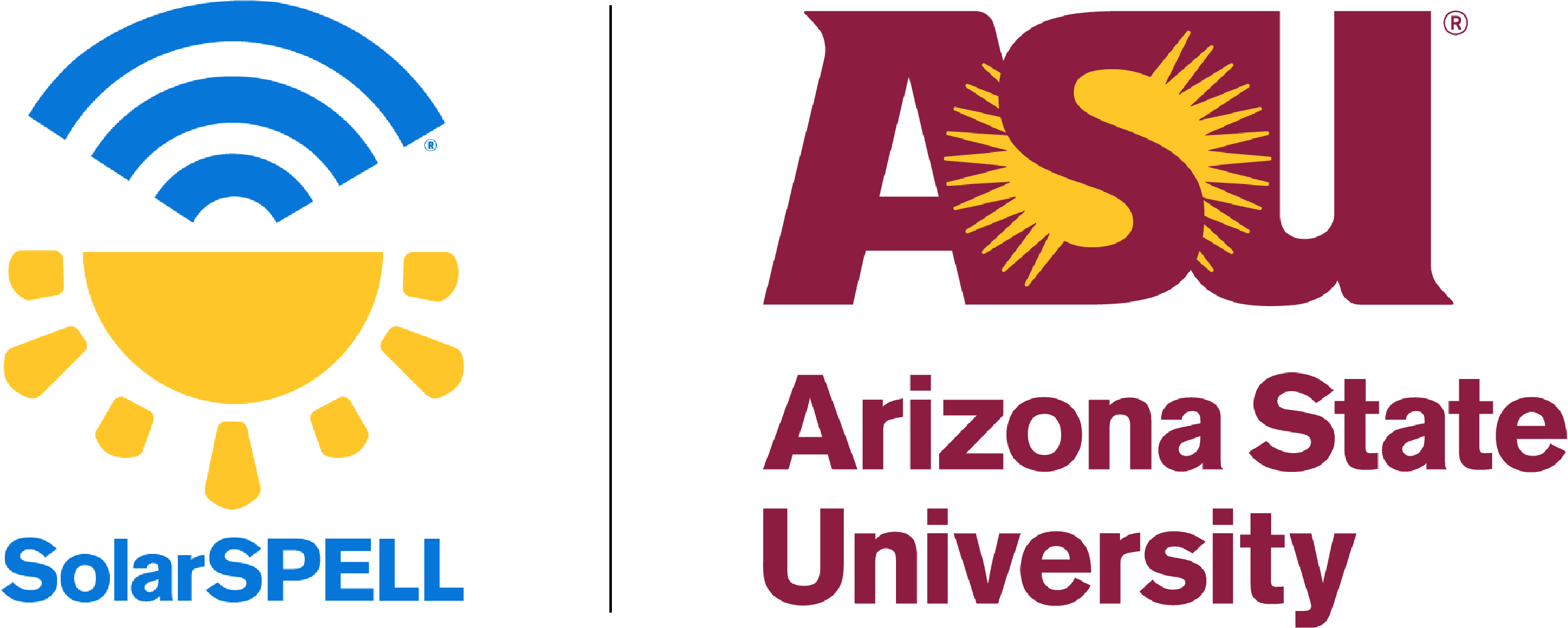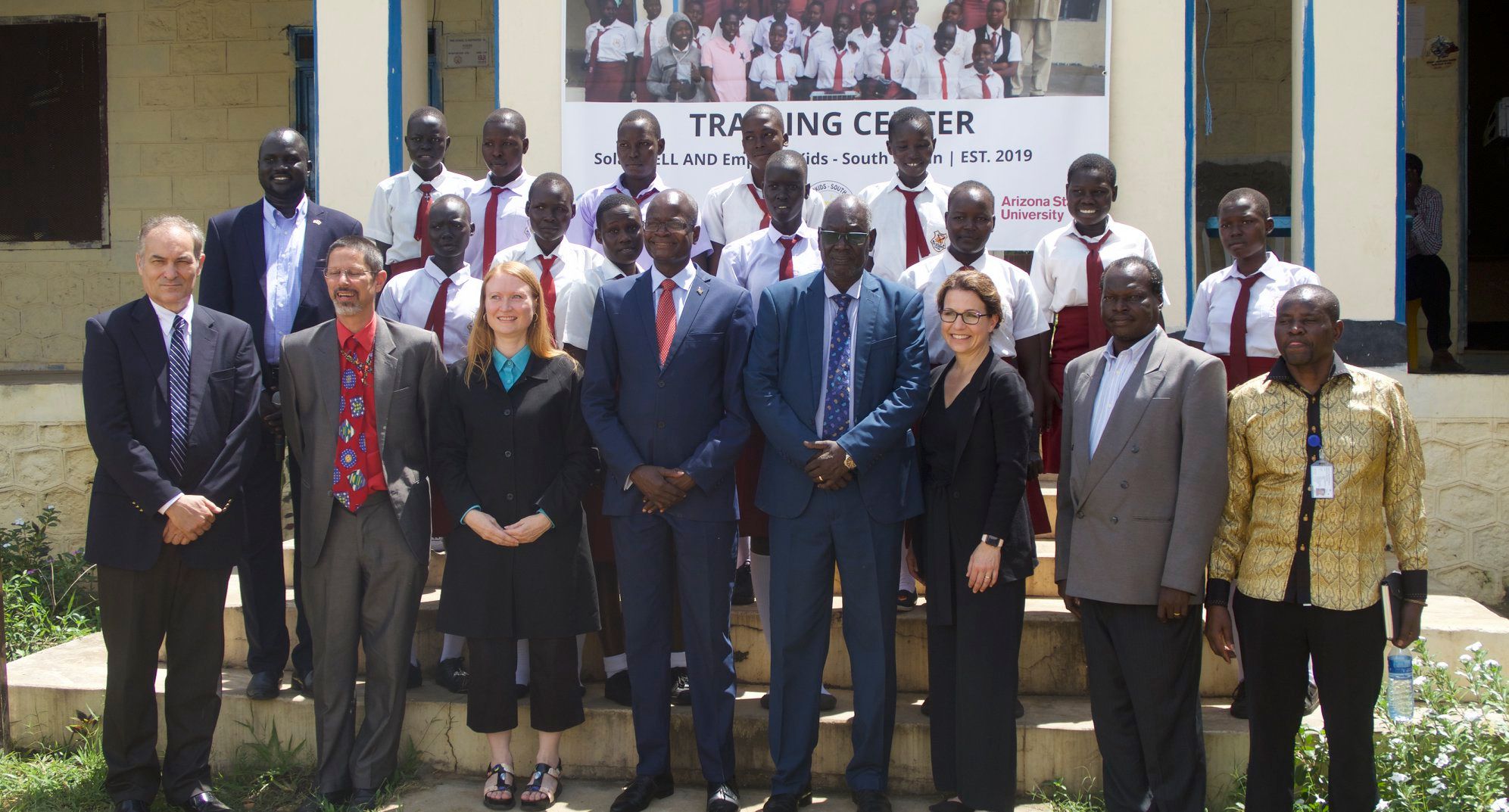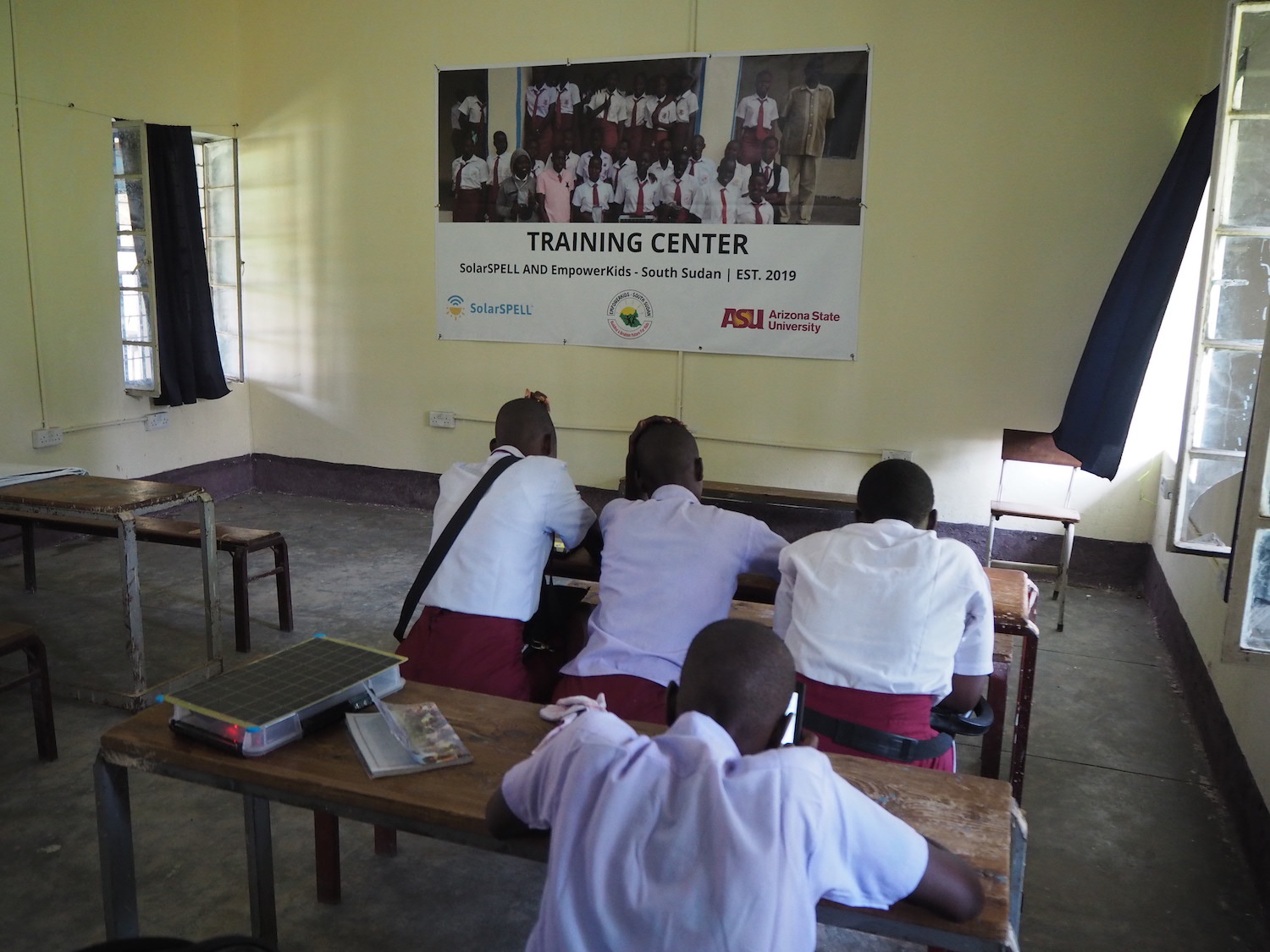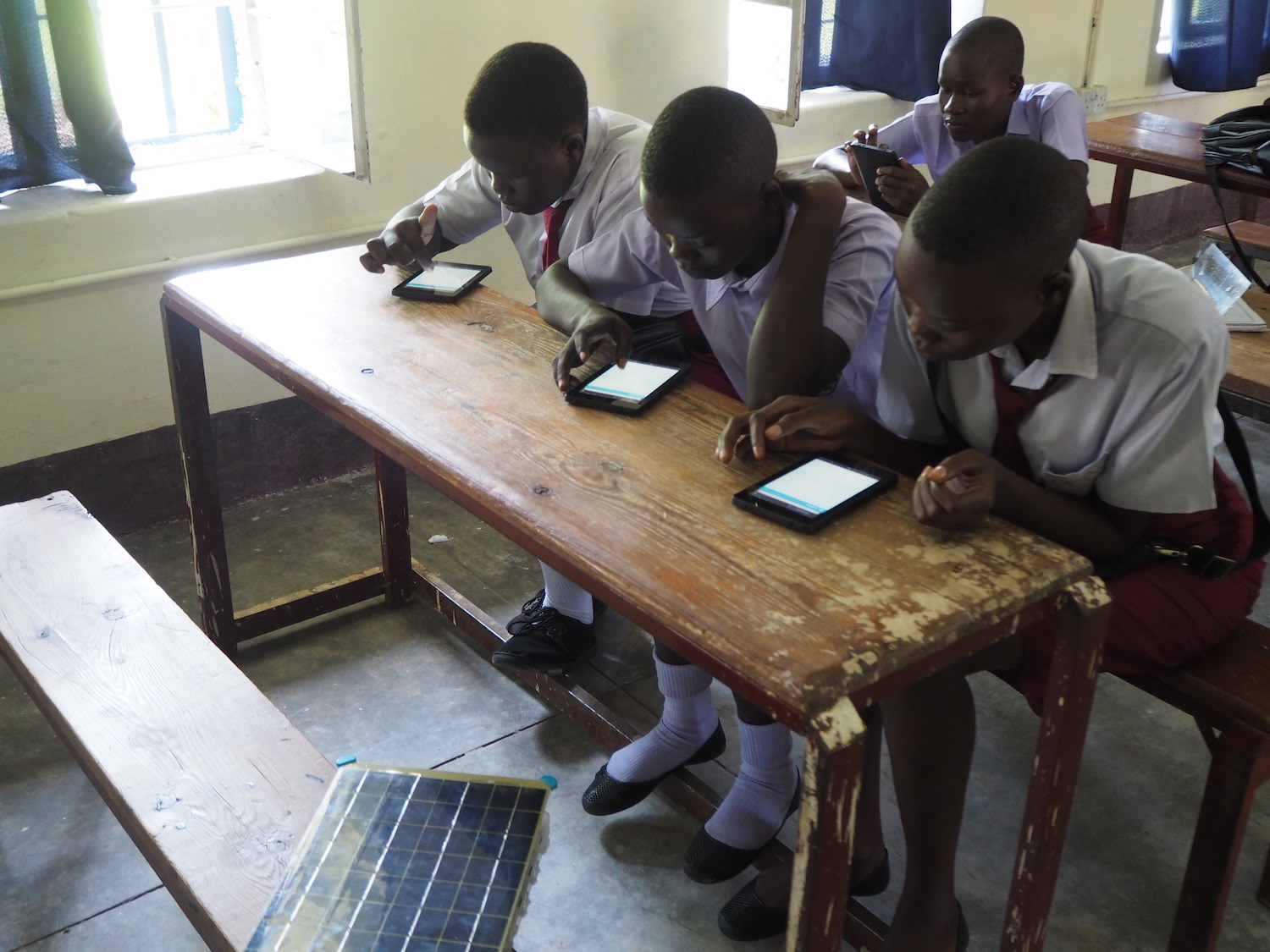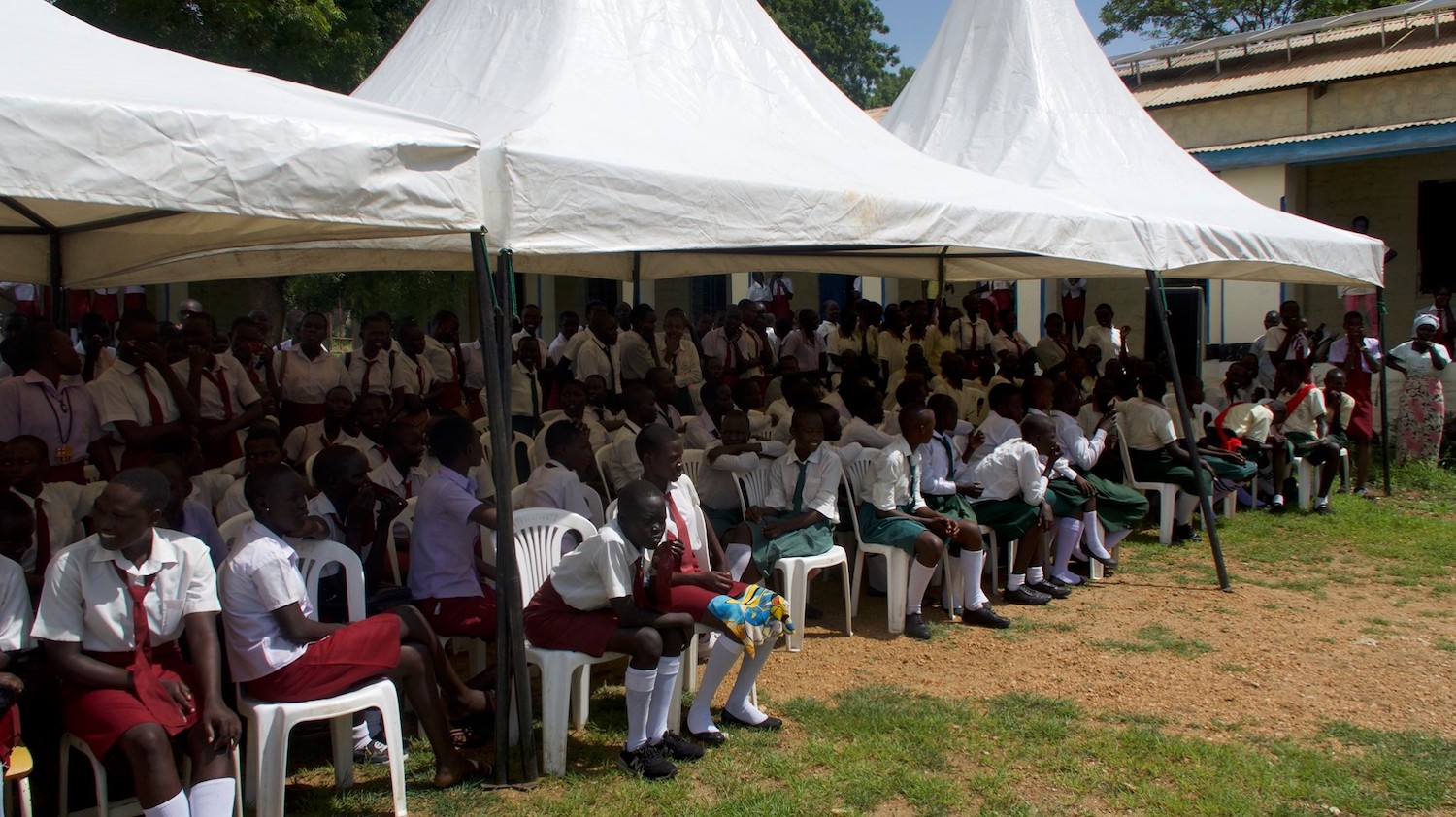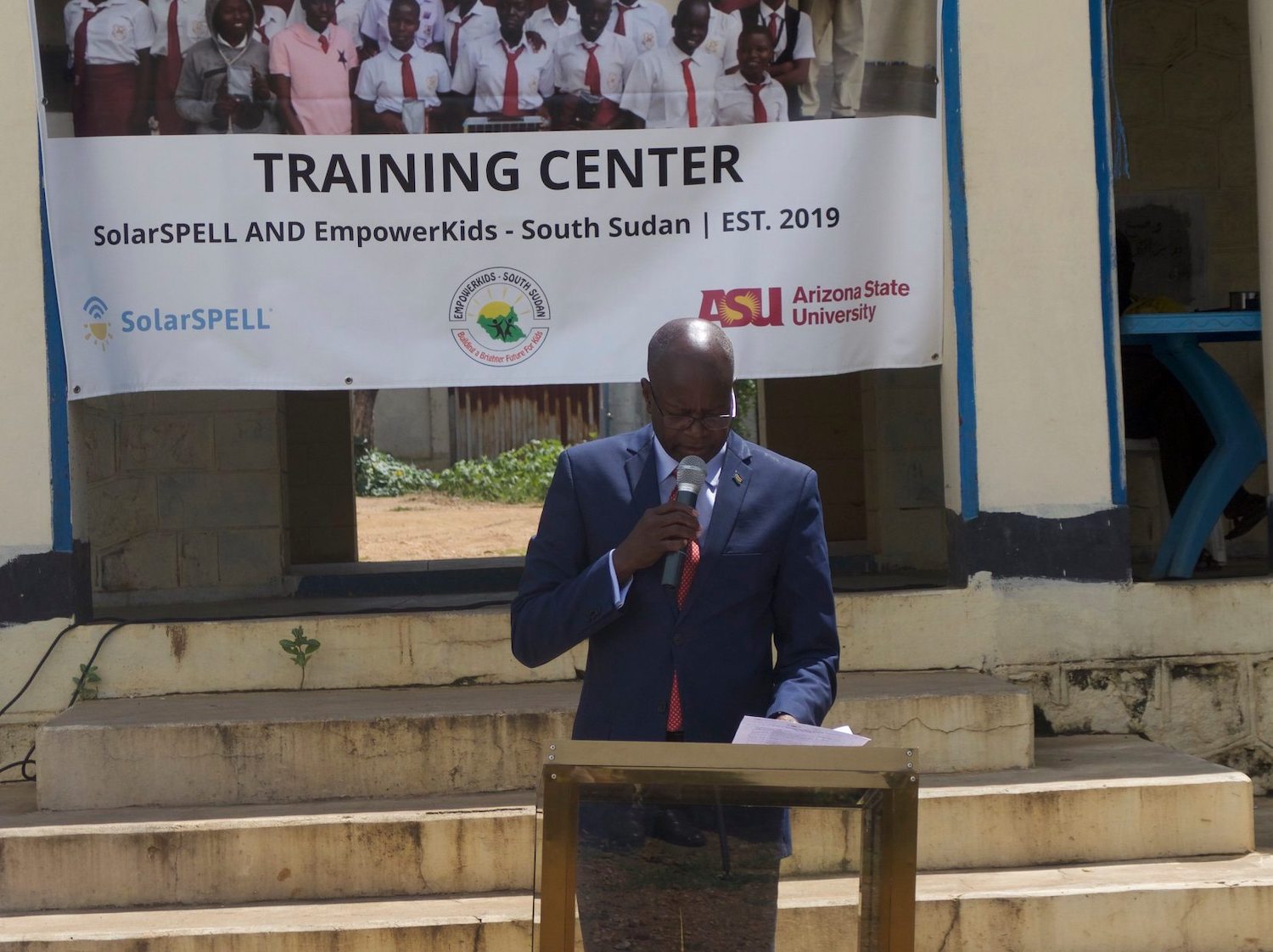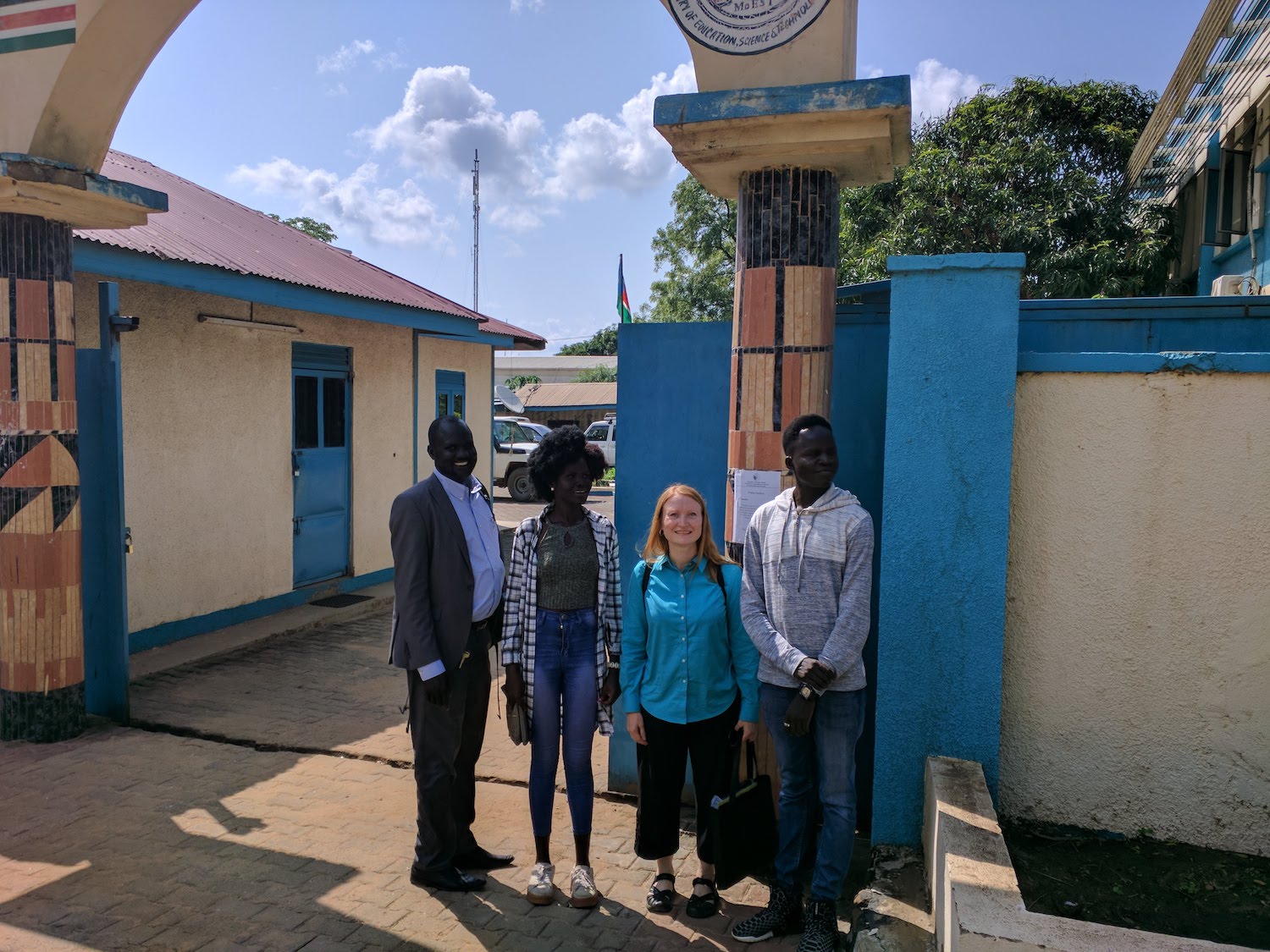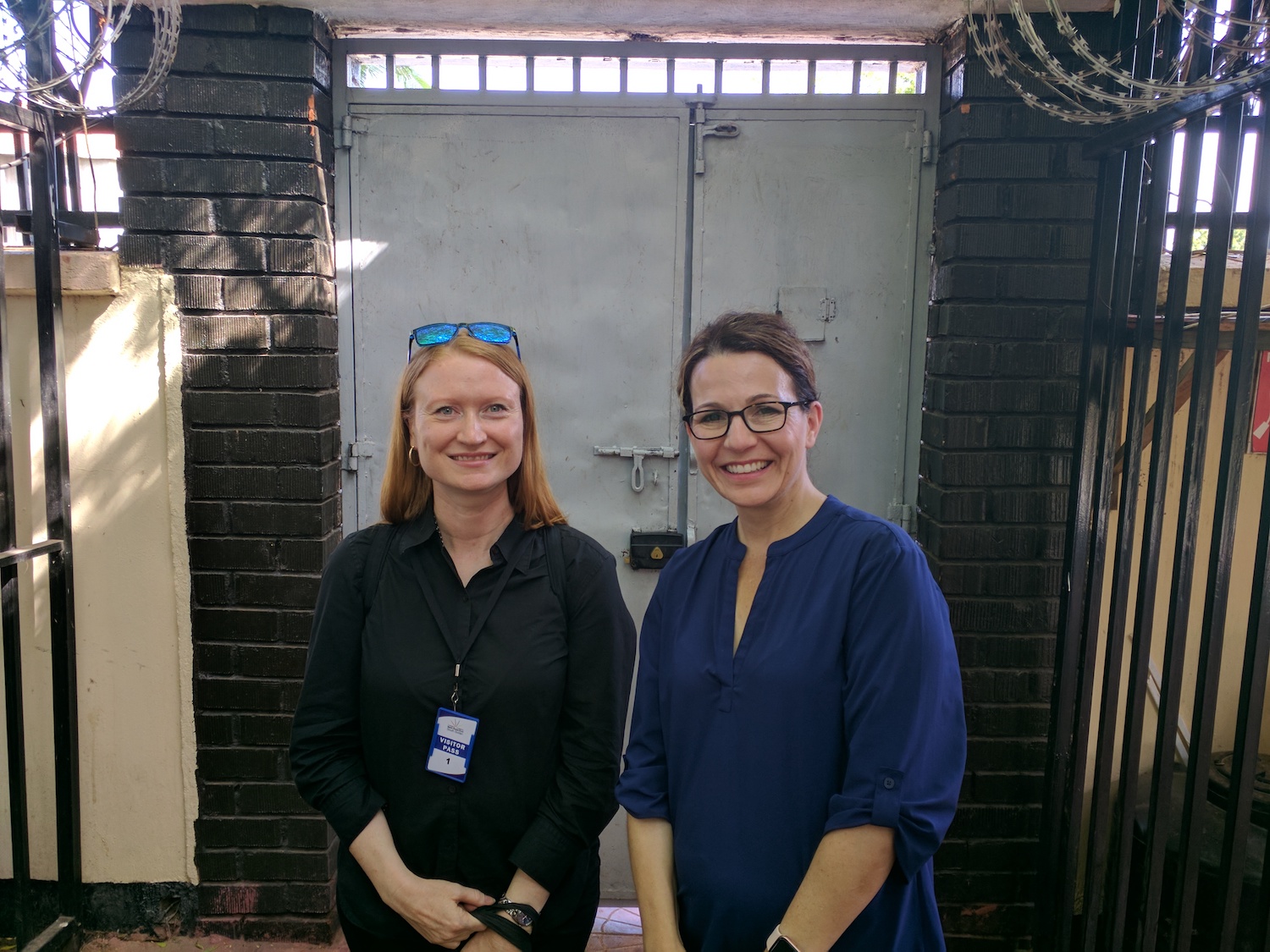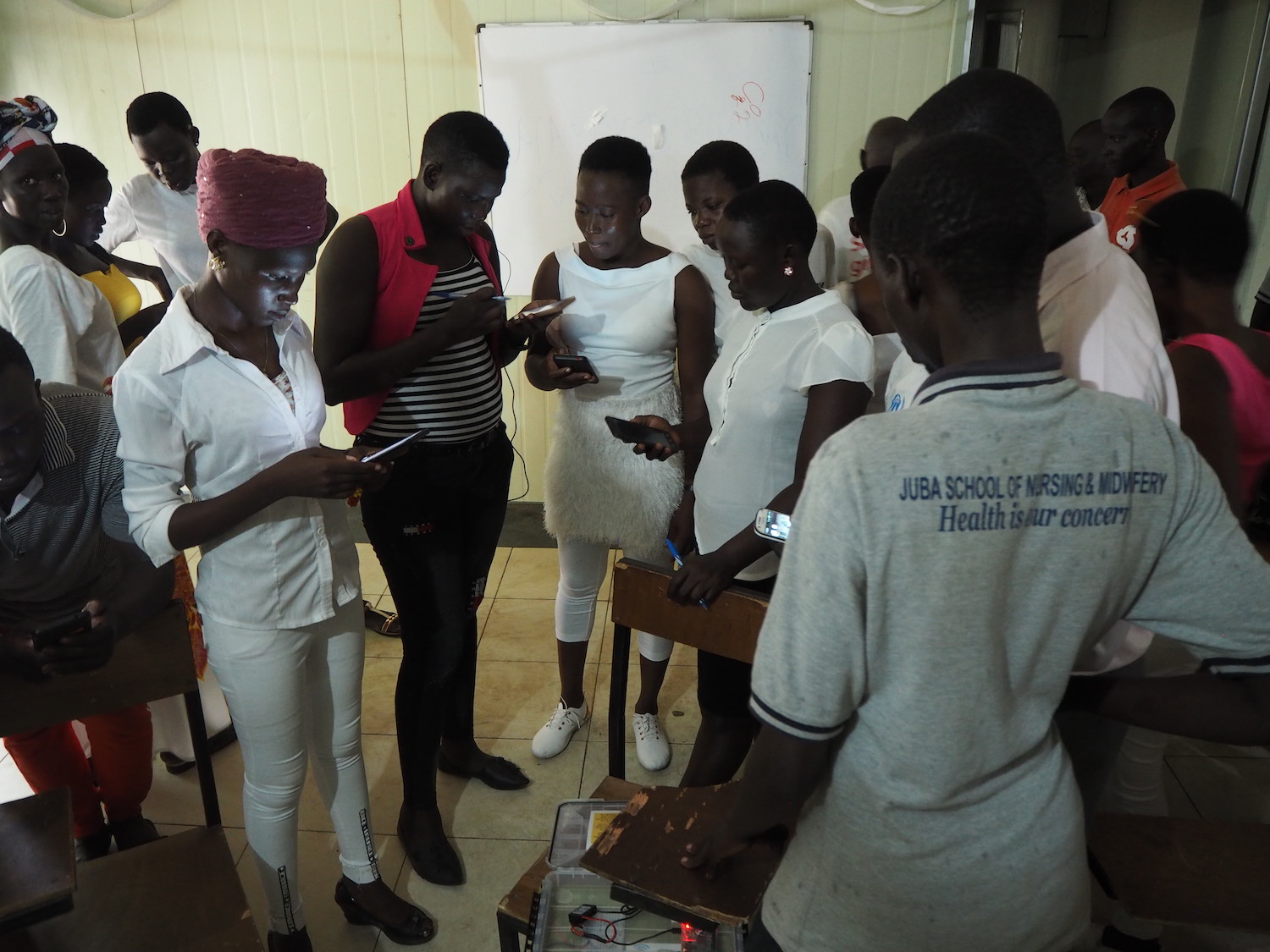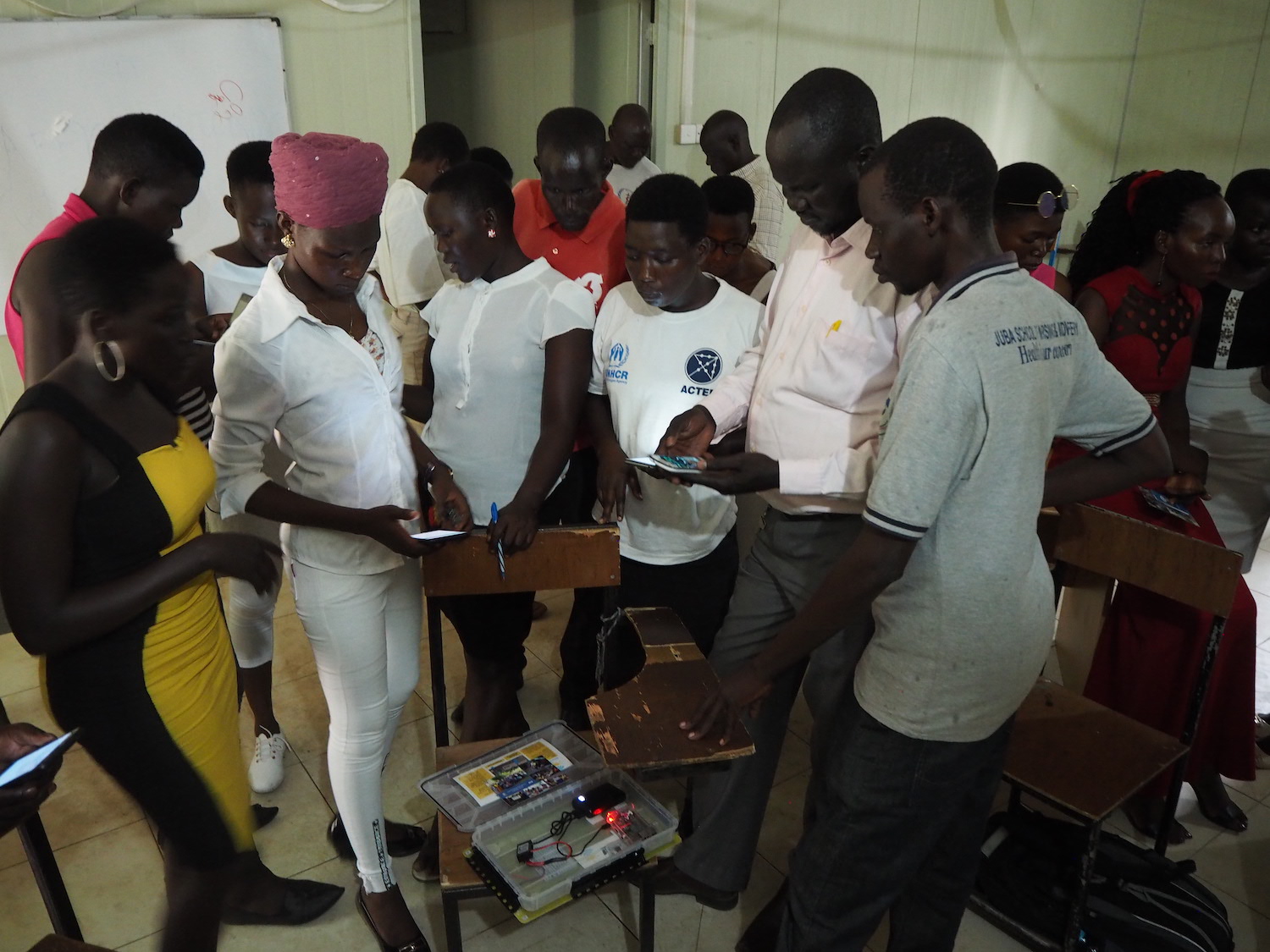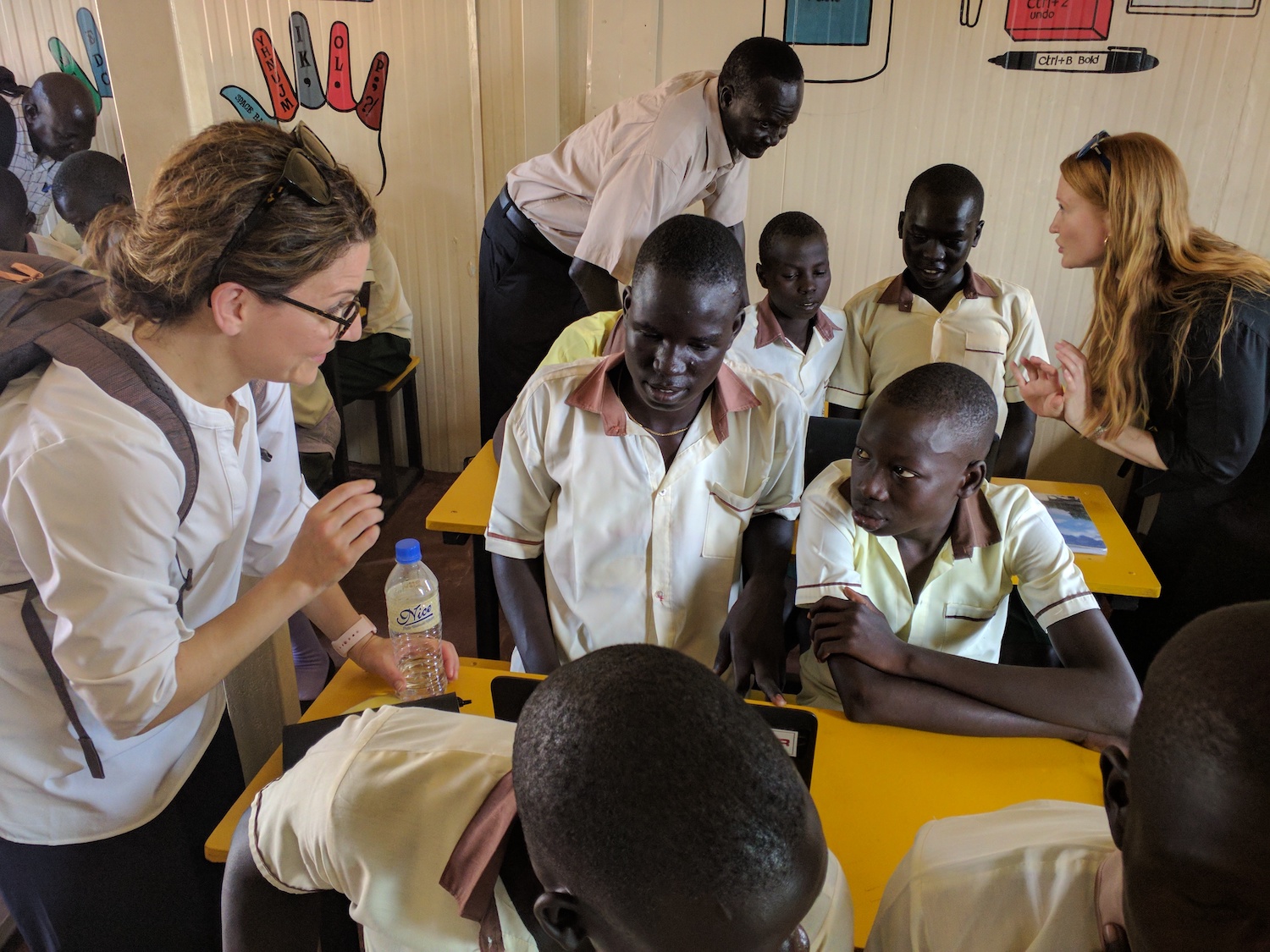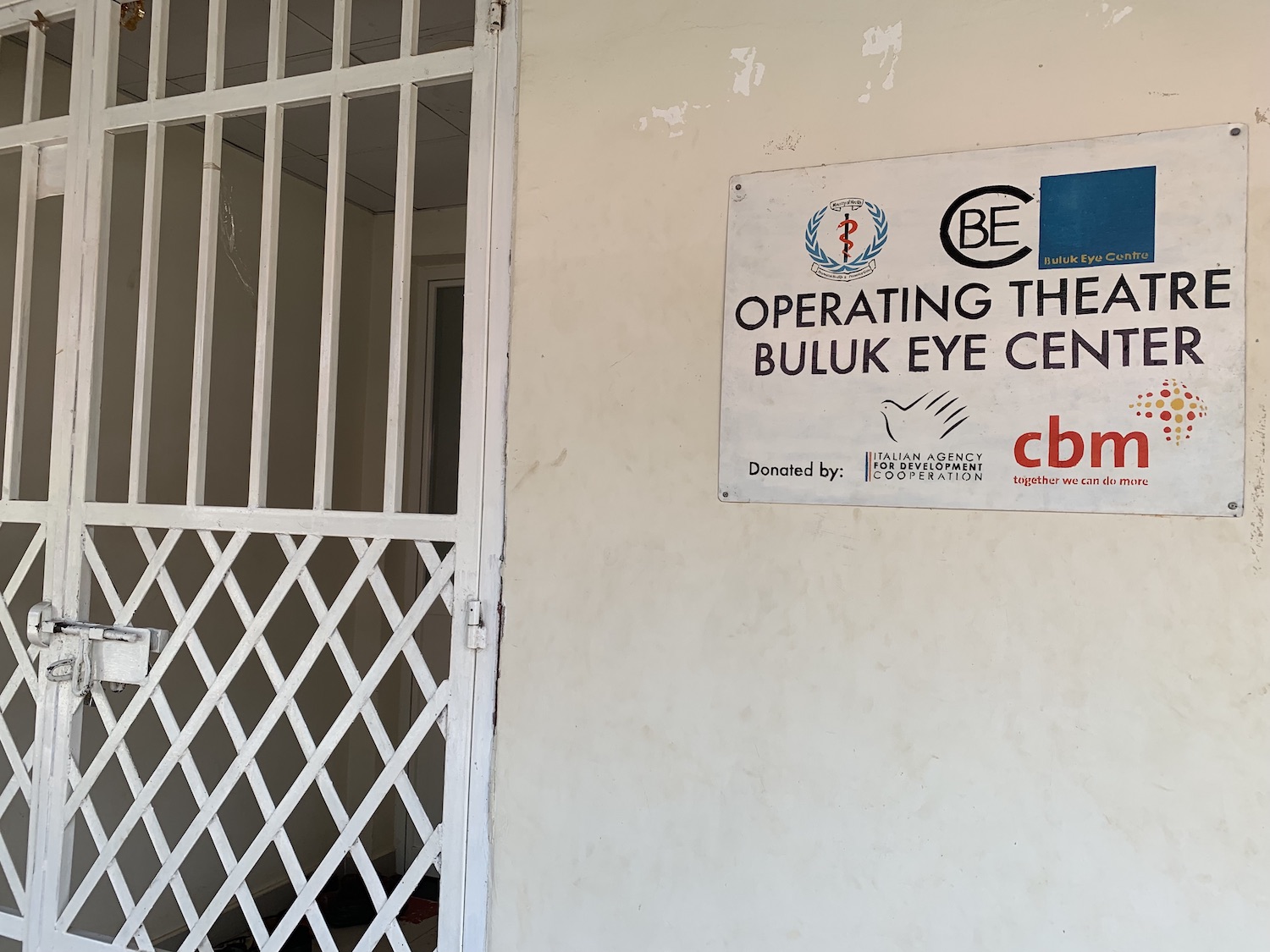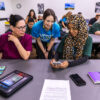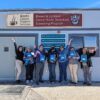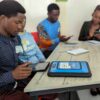The SolarSPELL team traveled to Juba, South Sudan for two weeks in July, 2019. There were two main purposes of this trip: first, to launch the SolarSPELL Training Center at Juba Girls School, and second, to gauge interest levels, identify potential partners, and lay the groundwork for developing SolarSPELL Health for South Sudan.
The SolarSPELL Training Center at Juba Girls School is the first of its kind. It provides a location where all schools in the Juba area that are participating in the SolarSPELL offline digital library program, can come for training. The launch of the SolarSPELL Training Center on July 10 was both a momentous occasion and celebratory event.
Among the honored guests who attended the event were the national Minister of Education Dr. Deng Deng Hoc Yai, the Jubek State Minister of Education Dr. Wani Sule Lado, and the US Embassy’s Public Affairs Office Jonathan Cebra. There were also many students in attendance, including from Juba Girls School and from Gabat Primary.
After many speeches, some songs and a drama from the Juba Girls School students which were held in an open courtyard at the center of the school, everyone headed to the SolarSPELL training center for a ribbon-cutting ceremony and a further explanation and demonstration of the SolarSPELL.
Successfully launching a center requires more than a celebratory event, of course. To help the center get off to a strong start, SolarSPELL engaged two student interns for the summer, Aluel Malaak Deng and Tongu Geofrey Abdalla Mondi. Aluel and Geofrey are assisting Philip Sunday (the center’s current staff member) in conducting teacher-trainings in the center, investigating which local schools may be good candidates for expanding the SolarSPELL initiative, and carrying out impact evaluation. We met them at the Juba airport on July 1 and spent the next two weeks with them at many meetings, trainings, and at the Launch celebration, where they took a leading role in showcasing and demonstrating the SolarSPELL to our invited guests.
The second aim of the trip was to gauge interest levels, identify potential partners, and lay the groundwork for developing SolarSPELL Health for South Sudan. Dr. Heather Ross, from ASU’s School for the Future of Innovation in Society and Edson College of Nursing and Health Innovation, played a crucial role in this undertaking. Dr. Ross will spearhead the development of SolarSPELL Health, a health-focused offline digital library to be housed on the SolarSPELL.
There were numerous meetings with multiple health-focused organizations, hospitals, and schools. All were enthusiastic and keenly interested in a health-focused library. To give one significant example, the team paid a visit to the Juba School of Nursing and Midwifery, and met with the Principal, not realizing that she had been teaching a class when she was pulled away to meet with us. Once we explained what the SolarSPELL offline digital library was and how it might be used for health teaching purposes, she called her students into the room where we were meeting.
Soon, the SolarSPELL team was surrounded by 60 students, all of whom had smartphones (as it’s a requirement of their nursing program). We were doing our best to connect all of them as quickly as possible. As soon as they understood that they could download the content to their phones to keep, take home with them, and/or share with their classmates, they started not only downloading this content, but organizing aloud amongst each other to make sure they weren’t duplicating efforts and were getting as much content as they could, for after we left.
It was quite an incredible, overwhelming experience for the team. Yet, even though there weren’t other meetings with 60 people excitedly flooding into our meeting room to get connected, the enthusiasm level amongst everyone with whom we met was incredibly high. As the newest country in the world, still struggling to get the basics set up for its people, South Sudan does not yet have a national electricity grid. Internet is by Satellite only, and is extremely expensive, even for those who are better off within the country. The recognition of what an offline, solar-powered educational library could provide was instantaneous, wherever we went.
Our team also met with doctors at South Sudan’s Health Pooled Fund, the College of Physicians and Surgeons, they Buluk Eye Clinic, and the University of Juba. Among many other things the team learned, one that stood out was that there is currently just one medical library in the whole country, housed at the College of Physicians and Surgeons, and that all students in any health-related field across the entire country must travel there to have access to medical texts. This underscores how valuable a portable, digital library that can be accessed by any smartphone could be across the country.
The SolarSPELL team hopes to focus initial SolarSPELL Health efforts on working with partners that already provide training and education. In this way, the information on the library can be provided to those already in training or in school, and thus already in need of it. It also addresses the need for a local trainer: these professionals are already educating, and the SolarSPELL will simply provide additional resources that were previously unavailable to them.
The SolarSPELL team will work with the health professionals we met with in early July, to identify their information/content/textbook needs, and to formulate a plan of action for implementing SolarSPELL Health, along with an impact evaluation plan. We hope to deliver Version 1 of SolarSPELL Health to these health professionals, at some of the above-mentioned organizations, as soon as possible.
